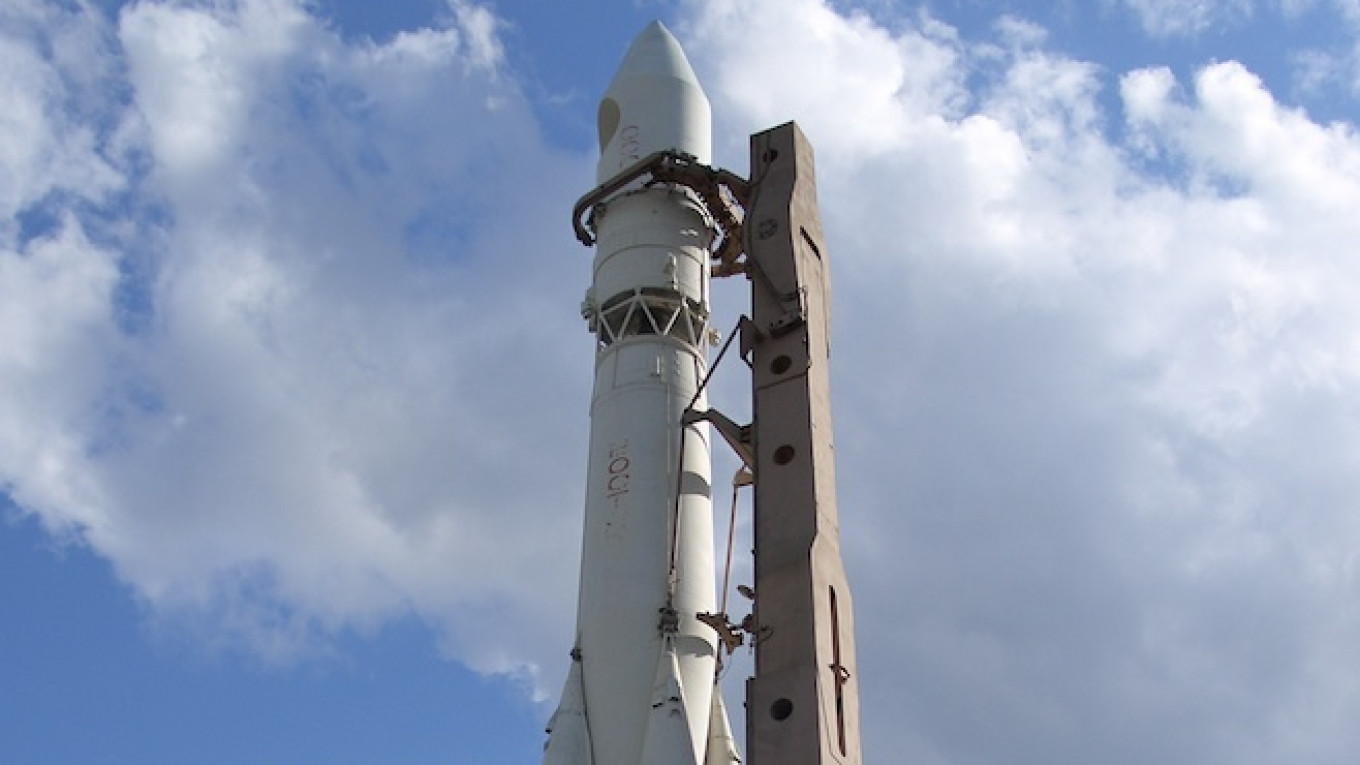Popular support for Russia's space program is as strong as ever, even as an economic crisis pushes greater numbers of Russians into poverty, according to a poll published Friday.
The survey by the Russian Public Opinion Research Center (VTsIOM) found that 47 percent of respondents wanted the nation's space program to be expanded, despite the current economic hardships. Forty percent said the current commitment to space exploration is appropriate, while 8 percent said expenditures should be cut, according to VTsIOM.
The government last May promised to spend 1.8 trillion rubles ($35 billion) on the space program through 2020.
The poll comes as Western sanctions on Russia over Ukraine and a sharp fall in the price of oil, Russia's main export, have combined to lower Russians' standard of living. Average real wages in February were 9.9 percent less than in February 2014, according to the state statistics agency Rosstat. At the end of last year 16.1 million Russians, or 11.2 percent of the population, were below the poverty line, a rise of 600,000 people from the year before. Russia's economy is expected to contract by up to 5 percent in 2015.
But support for Russian space exploration has traditionally survived economic shocks. In 1998, when Russia suffered a catastrophic financial crisis, VTsIOM found that 40 percent of respondents favored increasing space exploration, 30 said funding should not change and 11 percent were in favor of cuts.? ?
The uptick from 70 percent supporting current or expanded spending in 1998 to 87 percent in 2015 coincides with patriotic fervor unleashed by Russia's annexation of Crimea from Ukraine last year. Since the dawn of the space age in the 1950s, Soviet and Russian leadership have used the space program to inspire patriotism and project the image of a great scientific and technological power on a par with the West.
A recent Pew Research Center report found that at no time in the history of U.S. space agency NASA have more than 22 percent of Americans said the agency is underfunded.
That said, Russian spending on its space program in 1998 was significantly lower than it is today, with a budget of $600 million that year. The program was on the verge of collapse for most of the 1990s.
After Vladimir Putin became president in 2000 Russia allocated greater resources to reviving the program, and according to the VTsIOM poll, since 1998 the proportion of respondents who believe that Russia holds a dominant position in the exploration of space has doubled from 30 percent to 60 percent.
The poll also showed that 62 percent of respondents are strongly in favor of space cooperation with other countries. The U.S. remains Russia's primary partner in the field.
The VTsIOM poll was conducted on April 4 to April 5, sampling 1,600 people in 132 towns across Russia. The margin of error did not exceed 3.5 percent.
Contact the author at [email protected]
A Message from The Moscow Times:
Dear readers,
We are facing unprecedented challenges. Russia's Prosecutor General's Office has designated The Moscow Times as an "undesirable" organization, criminalizing our work and putting our staff at risk of prosecution. This follows our earlier unjust labeling as a "foreign agent."
These actions are direct attempts to silence independent journalism in Russia. The authorities claim our work "discredits the decisions of the Russian leadership." We see things differently: we strive to provide accurate, unbiased reporting on Russia.
We, the journalists of The Moscow Times, refuse to be silenced. But to continue our work, we need your help.
Your support, no matter how small, makes a world of difference. If you can, please support us monthly starting from just $2. It's quick to set up, and every contribution makes a significant impact.
By supporting The Moscow Times, you're defending open, independent journalism in the face of repression. Thank you for standing with us.
Remind me later.


